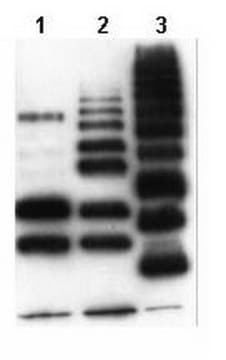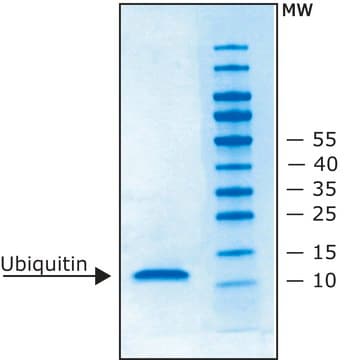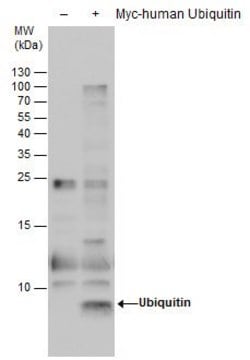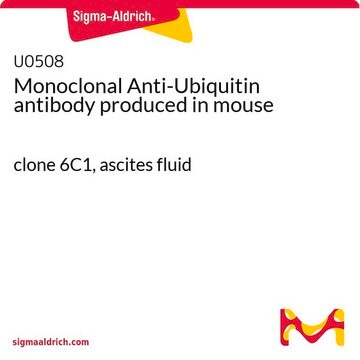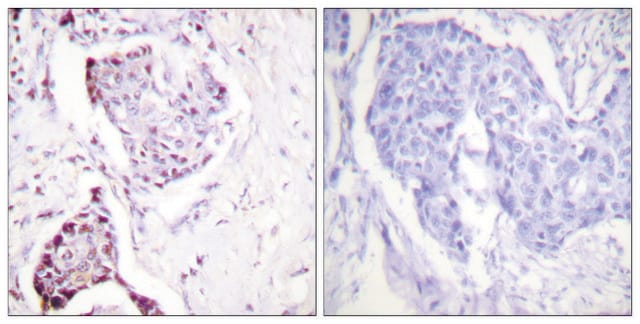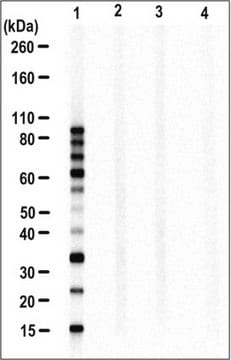U5379
Anti-Ubiquitin antibody produced in rabbit
whole antiserum, lyophilized powder
Synonym(e):
Anti-Ubiquitin antibody
About This Item
Empfohlene Produkte
Biologische Quelle
rabbit
Qualitätsniveau
Konjugat
unconjugated
Antikörperform
whole antiserum
Antikörper-Produkttyp
primary antibodies
Klon
polyclonal
Form
lyophilized powder
Mol-Gew.
antigen 8.6 kDa
Speziesreaktivität
prokaryotes, eukaryotes
Methode(n)
immunohistochemistry (frozen sections): suitable
western blot: 1:100 using ubiquitin purified from bovine red blood cells
UniProt-Hinterlegungsnummer
Lagertemp.
2-8°C
Posttranslationale Modifikation Target
unmodified
Angaben zum Gen
human ... UBB(7314) , UBC(7316)
mouse ... Ubb(22187) , Ubc(22190)
rat ... Ubb(192255) , Ubc(50522)
Allgemeine Beschreibung
Spezifität
Immunogen
Anwendung
- immunostaining in neuropathology
- immunohistochemistry
- western blotting
Biochem./physiol. Wirkung
Zielbeschreibung
Physikalische Form
Rekonstituierung
Haftungsausschluss
Not finding the right product?
Try our Produkt-Auswahlhilfe.
Empfehlung
Lagerklassenschlüssel
11 - Combustible Solids
WGK
WGK 3
Flammpunkt (°F)
Not applicable
Flammpunkt (°C)
Not applicable
Persönliche Schutzausrüstung
Eyeshields, Gloves, type N95 (US)
Analysenzertifikate (COA)
Suchen Sie nach Analysenzertifikate (COA), indem Sie die Lot-/Chargennummer des Produkts eingeben. Lot- und Chargennummern sind auf dem Produktetikett hinter den Wörtern ‘Lot’ oder ‘Batch’ (Lot oder Charge) zu finden.
Besitzen Sie dieses Produkt bereits?
In der Dokumentenbibliothek finden Sie die Dokumentation zu den Produkten, die Sie kürzlich erworben haben.
Kunden haben sich ebenfalls angesehen
Unser Team von Wissenschaftlern verfügt über Erfahrung in allen Forschungsbereichen einschließlich Life Science, Materialwissenschaften, chemischer Synthese, Chromatographie, Analytik und vielen mehr..
Setzen Sie sich mit dem technischen Dienst in Verbindung.
